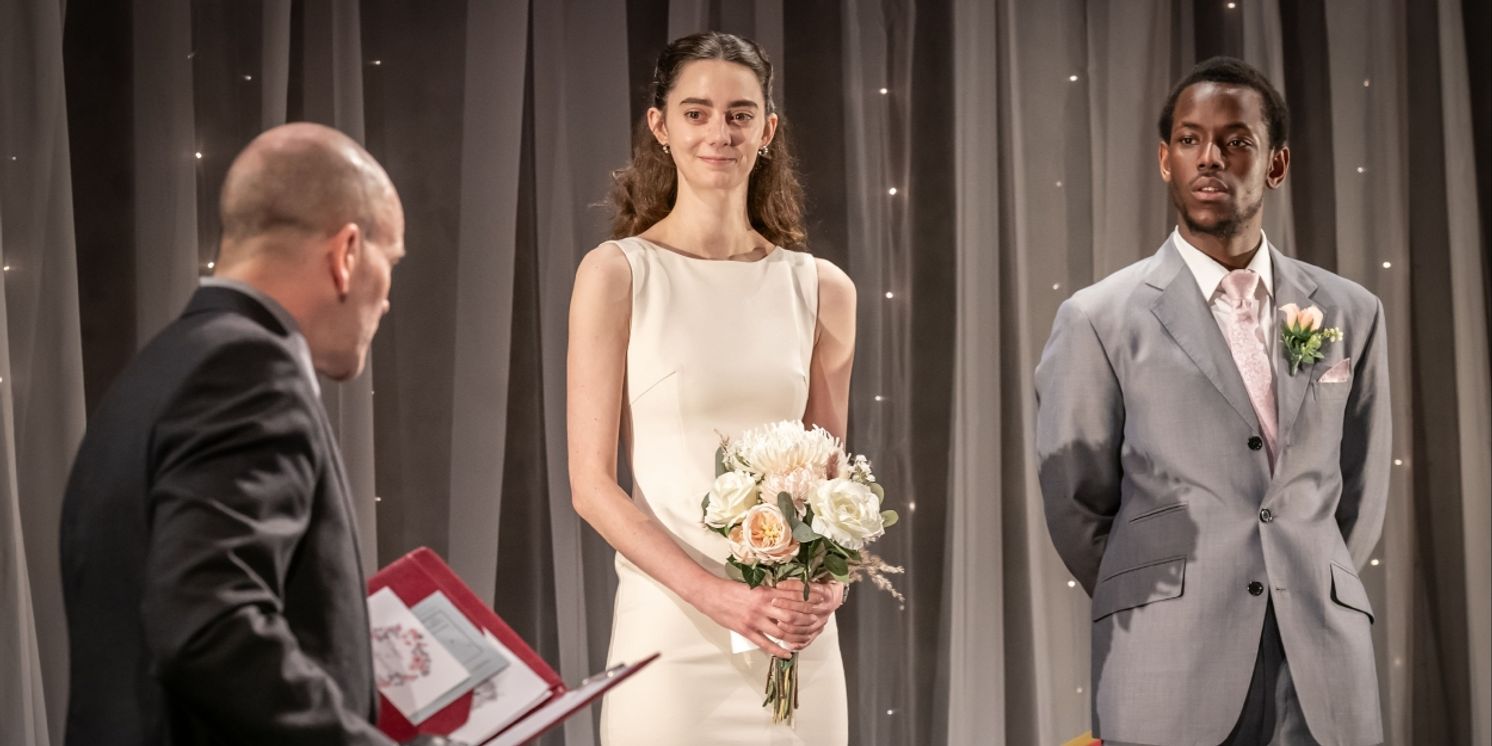Review: A MIRROR, Almeida Theatre
This theatrical dystopia is Orwell that doesn’t end well

![]() Protest theatre with nothing to protest. Who would have thought it was possible?
Protest theatre with nothing to protest. Who would have thought it was possible?
A Mirror sees the Almeida decked out as if it is hosting a wedding; Johnny Lee Miller skulks around welcoming guests, us the audience, his bald head catching the glow of fairy lights dangling above. Expect it’s all a ruse, just smokescreen for the performance of an underground “unlicensed play” in a vaguely defined totalitarian regime.
Orwellian bells ring loudly in Jeremy Herrin's production with vague references to menacing sounding acronyms and ministries, but Sam Holcroft’s new play is more spiritually in sync with Milan Kundera, the Czech novelist who poked and prodded pen pushing Soviet bureaucracy marking him as a political dissident.
Kundera’s novels bleed with fiery wit, the political force of which can still be felt. Here A Mirror struggles to conjure the weight it wants to. An interesting story is shattered to bits by gimmicky meta-theatricality. If A Mirror looks into a mirror, it is only to naval gaze, not to tell its story.
The play within the play follows Adem, a mechanic turned playwright whose incendiary scripts are transcriptions of real situations. He catches the attention of Čelik, a government minister, played by a gleefully scenery chewing Miller. He wants to turn Adem’s literary knack into propagandist stories of heroism. The playwright’s relentless pursuit of literal truth lands him in hot water as he transcribes his meetings with Čelik.
There are interesting ideas lingering at the core. Čelik parallels early Soviet artists who held that art should levitate the struggle of man and point upwards rather than hold, wait for it, a mirror to the grim misery of Stalin’s Russia. Realism, even that of seemingly banal conversation, becomes a powerful weapon in the face of a delusional propagandist who believes his own utopianism.
But as the play unfolds, each palimpsestic story unravels into each other until it doesn’t seem to know what it wants to say or do. The audience are clunkily reminded of its artifice and even invited to keep up the wedding ruse. It eventually collapses in on itself. The resulting muddle is less a lecture on the perils of censorship but rather a disjointed aesthetics seminar. Theodor Adorno would shrug in bafflement. The metaphysics of art? Truth? Censorship? Theatre as protest?
It’s the latter that echoes most vacuously. There is no comparison to actual theatre companies who risk their lives to perform. The endlessly poignant work of the Belarus Free Theatre, political exiles banned in their own country, springs painfully to mind. Their art is not a luxury. It’s not Islington and press night Prosecco. It’s a moral necessity that is fought for with every fibre of their being.
Admittedly it’s refreshing to see risk taking theatre that is unafraid to explore in capital-P Politics in a fashion that doesn’t reduce itself to finger wagging agit-prop. But sadly all A Mirror can do is pose at being the real thing. For a theatrical dystopia, this is Orwell that doesn’t end well.
A Mirror plays at the Almedia Theatre until 23 September
Photo Credit: Marc Brenner
Reader Reviews
Videos

